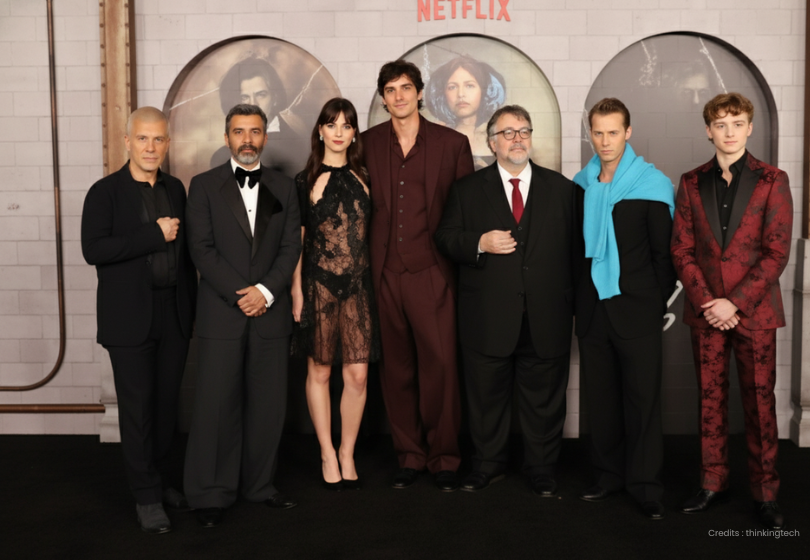Fluent in Python, sarcasm, and talking to chatbots.
Hollywood’s obsession with reboots continues, but Frankenstein 2025 stands out for one reason: it dares to take a storytelling leap no modern adaptation has attempted. While the film may not be flawless, it nails a single creative decision so well that it reshapes how we view this iconic monster for a new generation.
In this review, we break down what Frankenstein 2025 gets right, why this specific choice is earning praise, and how it changes the future of sci-fi horror filmmaking.

Reimagining Frankenstein isn’t easy. The original Mary Shelley novel deals with themes like creation, morality, ambition, and abandonment. Many adaptations struggle to balance horror with humanity, often leaning too heavily into jump scares or over-the-top CGI.
Frankenstein 2025 approaches the story differently. Instead of simply updating the monster with futuristic technology, the film focuses on a deeper psychological narrative—one grounded in emotion, ethics, and the consequences of creating life in an era ruled by artificial intelligence.
The most striking and successful decision in Frankenstein 2025 is to let the creature narrate the story. Instead of being a mute, misunderstood being, the monster communicates clearly, offering raw insight into his pain, identity, and conflict with humanity.
This shift in perspective transforms the narrative in three powerful ways:
By giving the creature a voice, the film forces viewers to confront uncomfortable truths—about prejudice, fear, and the ethics of scientific creation.
Dr. Victor Frankenstein is no longer the tragic genius misunderstood by the world. Through the creature’s eyes, we see manipulation, obsession, and a dangerous disregard for responsibility.
This narration-based structure elevates the story from a sci-fi horror film to a philosophical exploration of identity, autonomy, and survival.
While the emotional core is strong, the futuristic 2025 backdrop adds relevance. The film integrates:
These elements show how Shelley’s themes remain more relevant than ever in an age of rapid technological evolution.

The creature’s portrayal is the highlight—intense, vulnerable, and unexpectedly reflective. The performance anchors the film, making the narration believable and emotionally charged.
Victor Frankenstein’s character is equally compelling, though intentionally flawed. His portrayal captures the ambition and arrogance that drive the film forward.
While Frankenstein 2025 excels in its narrative experiment, not everything lands perfectly:
But the film’s core strength is so powerful that these shortcomings don’t overshadow its impact.
Frankenstein 2025 succeeds not by amplifying horror but by amplifying perspective. Giving the creature a voice brings new life to a classic story and pushes the conversation forward about humanity’s role in creating and controlling life.
This choice alone makes the film one of the most interesting modern interpretations of Frankenstein.
Frankenstein 2025 isn’t perfect, but it does one thing extraordinarily well—and that single decision changes everything. By making the monster the narrator, the film delivers a fresh emotional depth, a new angle on responsibility, and a nuanced sci-fi horror experience.
If you enjoy stories that blend technology, philosophy, and classic literature, this adaptation is worth watching.
No Comments